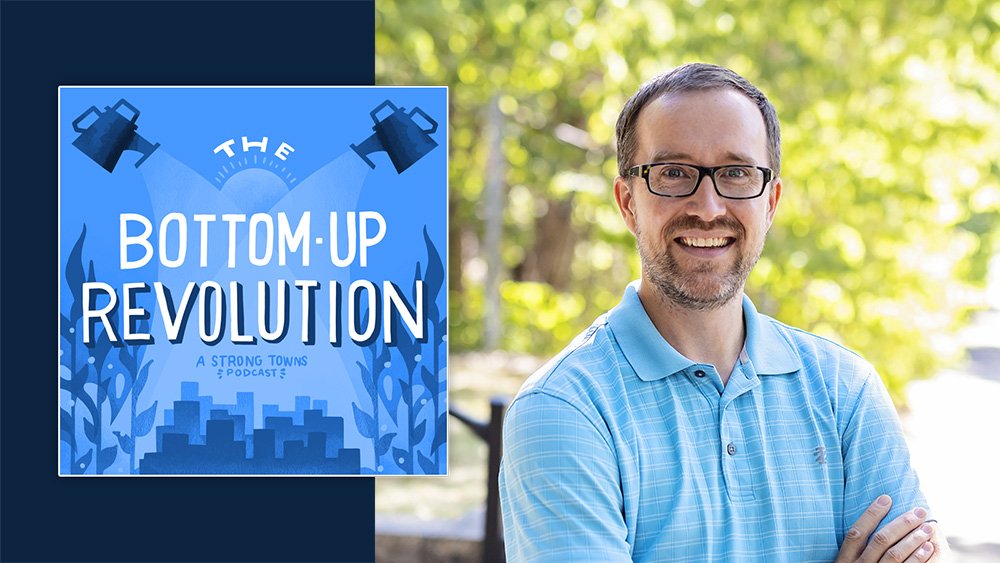Ask Yourself These 20 Questions to Make Better Decisions for Your Community
A few Decembers ago I was out doing some holiday shopping at Powell’s Books on Hawthorne. Less famous than its flagship location — downtown Portland’s City of Books, home to over a million books — the Hawthorne location feels like my neighborhood bookstore. In fact, it used to be my neighborhood bookstore, when, early in our marriage, my wife and I lived in an apartment just two blocks away. Though we live in Silverton now, about an hour’s drive door-to-door, I still try to visit the Hawthorne Powell’s once every month or two. Any less than that and I start to physically miss it.
On this particular night I noticed a new poster on the wall. Created by Powell's, it was a gorgeously designed decision-making tree. By answering a series of questions you were finally led to a book recommendation. What's embarrassing is that I don't remember which books were featured on the poster, or even which genres. But I do remember standing in front of that graphic for at least five minutes, checking out all the recommendations and exploring the various paths to get there.
I also remember thinking at the time how useful it would be to have a decision-making tree tucked into my wallet (if not tattooed onto my forearm) to help me be more intentional about the decisions I have to make every day.
It is shocking to me how often I make decisions that are contrary to my own stated beliefs. Sometimes I weigh the costs and make the wrong choice. But most often I don't truly deliberate at all. So I find myself regretting choices I don't remember consciously making in the first place!
I don’t think I’m alone in needing to be more intentional about my decisions. All of us are probably there. And not just with personal decisions either, but the decisions that affect the places we care most about: our streets and neighborhoods, our towns and cities. What are we bequeathing to the next generation in terms of assets (the resilient places they get to inherit) and liabilities (for example, unsustainable debt)?
All of us — whether we are elected officials, civic leaders, professional planners, activists and practitioners, or simply good neighbors — all of us can do better at acknowledging the ripple effect our decisions (large or small) have on our family, friends and community, both now and into the future. The decisions we make should both reflect and reinforce the love we have for our communities. Because a community has to be lovable to survive.
With all that in mind, here are some questions I want to ask so that I can make decisions consistent with my highest ideals for my community. They would make an ugly tattoo, but I have found other ways to remember and revisit them. In fact, I printed them out as a poster that now hangs in my office.
Beauty
Is the outcome of this decision ugly, wasteful or fraudulent? Or is it beautiful, nurturing and true?
Place
To quote from one of my favorite Wendell Berry poems, does the outcome of this decision “obscure the place” it is in?
The Future
The outcome of this decision may seem good, luxurious or convenient for me, but am I pushing the real costs onto someone or something else, including my children’s children’s children’s children?
The Past
Does my decision honor the best of what has come before, as well as the hard lessons of the past?
A poster I made for myself. It hangs in my office.
The Land
Does it meet the standards of protection and care for the creaturely world that are a part of the human mandate in nearly all the great wisdom traditions?
Neighborhood
What effect will this decision have on the culture and economy of my home? Of my neighborhood? Of other neighborhoods?
Thrift
When contemplating a purchase, is there a reasonable way of making it, borrowing it, or growing it myself?
Integrity
Who is telling me to do or buy this thing? Can they be trusted, or should they be respected, questioned, or resisted outright?
Justice
When contemplating a purchase, can I trust that the producer has been, or will be, fairly compensated?
Conversation
What are the political consequences of this decision? Will it raise the level of public discourse? Will it improve the conversation? Does it make collaboration toward the common good more or less likely?
Family
Can I justify this decision to my wife in the morning? Can I justify it to my daughters in 20 years? If the answer to either of these questions is no, then how am I justifying it to myself now?
Your turn: What are the questions and considerations you use to make choices that will affect you, your loved ones, and your communities? What are some ways in which you keep those questions and considerations at the front of your mind?





Katy Clagett is a commercial real estate appraiser and activist. She joins the podcast today to talk about the ways that bottom-up projects can build community, as well as her experiences with spearheading this kind of project.